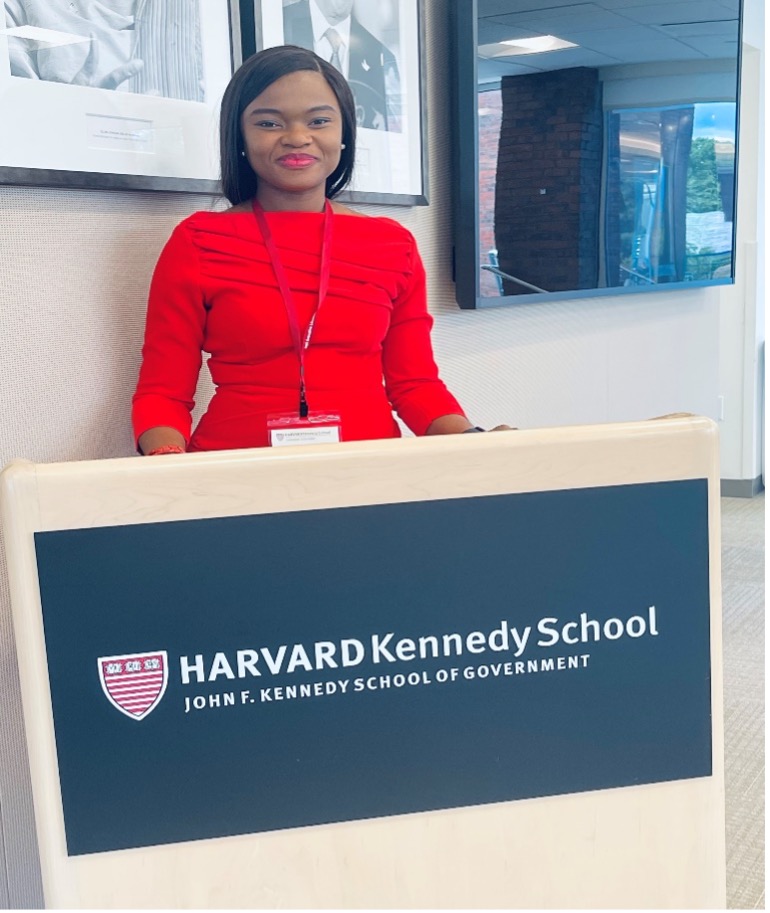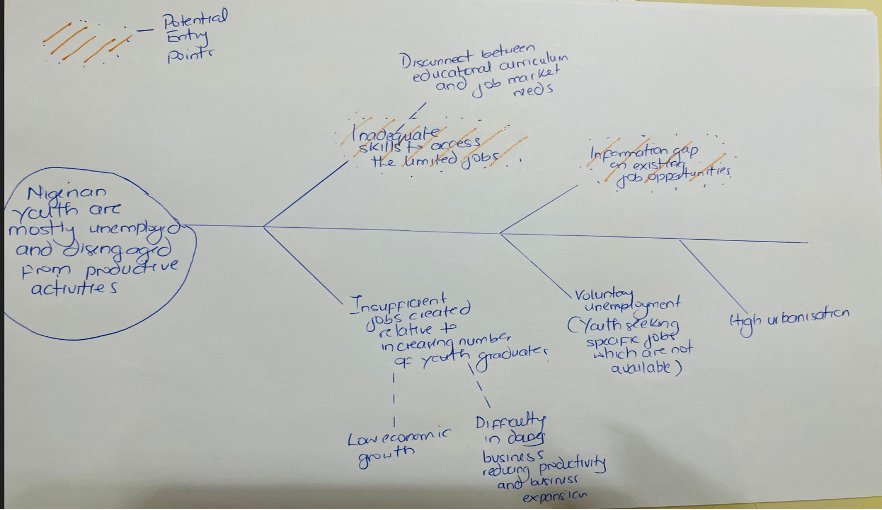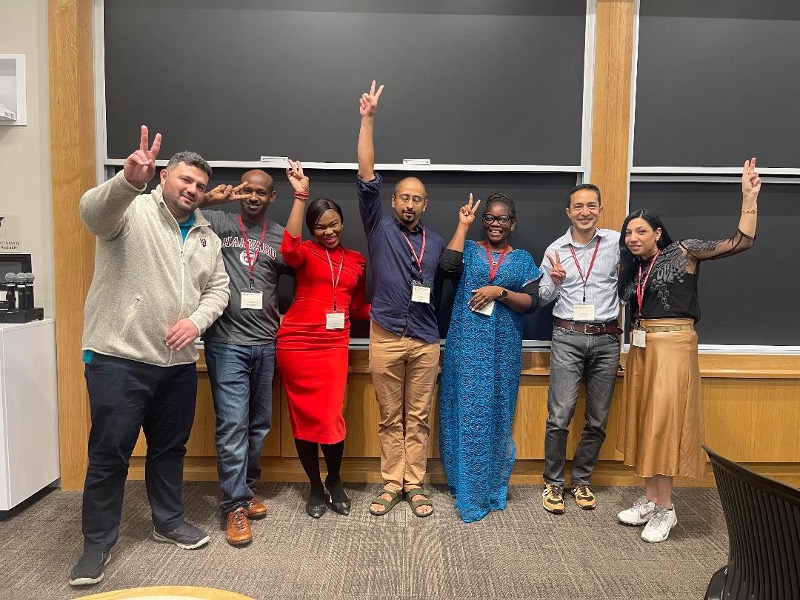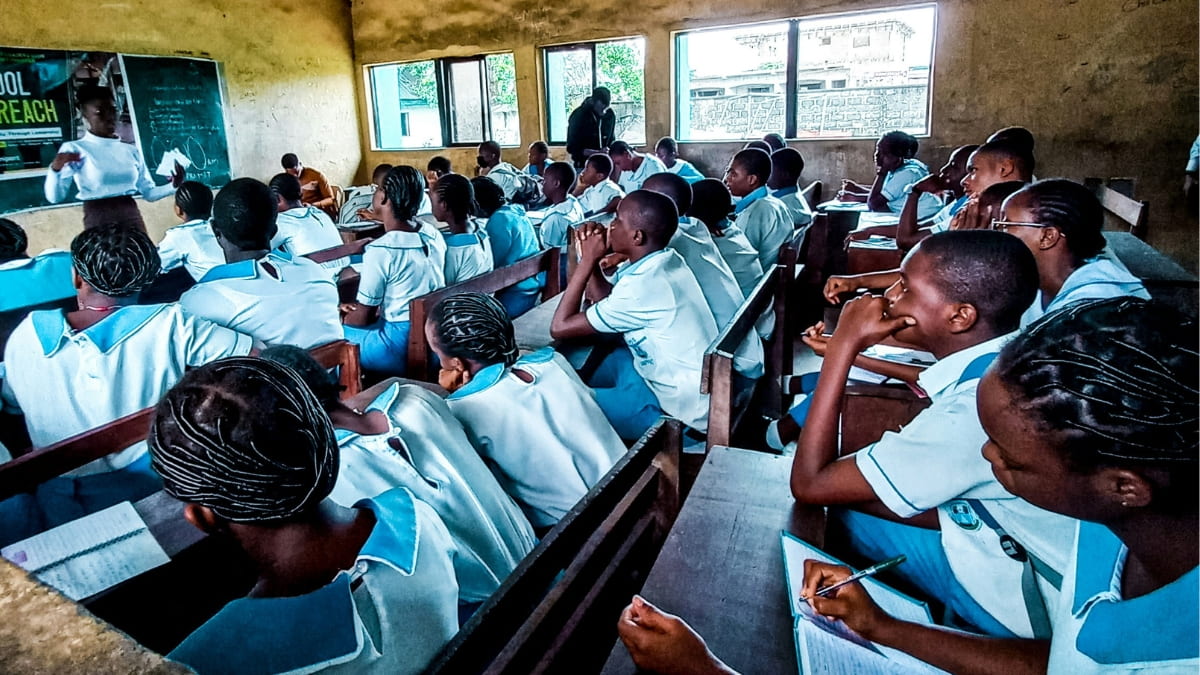Guest blog by Esther Adegunle, IPP ’23
“Two professionals, an Economist and a Brilliant Citizen, catch up to discuss the Economist’s recent educational journey at Harvard Kennedy School and its impact on their work in Nigeria.”
Brilliant Citizen: Hello, my Economist, you are looking good and happy!
Economist: Thank you, I certainly am happy.
Brilliant Citizen: You are one of the few that are happy in this hard Nigerian economy and all the global crises. Please share some of the good news, I really need it too.
Economist: I agree there are many things happening to make one sad, but I try to focus on the other good things happening around. For me, one is completing my course with Harvard Kennedy School (HKS) in a few weeks.
Brilliant Citizen: Wow, congratulations. Please where do you find the dollars to do the courses at HKS? (smiling) I remember you did one last year and another earlier.
Economist: Yes, this is my third program with HKS executive education. I finished the Leading Economic Growth in 2021, just after having my second baby. Last year, I completed the Leading Smart Policy Design and this year – the Implementing Public Policy.

Brilliant Citizen: You are doing well! Well done. Tell me more about the Implementing Public Policy, sounds like an interesting one.
Economist: Yes, it was a remarkably interesting and very practical one. With a focus on implementing policy, each participant selected a policy challenge, related to our everyday work. I focused on what I have been working on for almost a decade – Reducing youth unemployment in Nigeria.
Brilliant Citizen: Interesting that you could choose a specific policy challenge. So, how has it helped you to solve the unemployment problem in Nigeria? The last I checked it is still very high and many youths are looking for other means of livelihood.
Economist: Calm down, doing a program will not immediately solve the challenge. Rather, the course reminds us that the challenges we are solving are complex and require continuous work. Then, it equips us with some tools and approaches to contribute to solving complex issues. Public policy implementation requires rigorous work with stakeholders and continuous actions.
Brilliant Citizen: True, I agree. Tell me more about this challenge and some tools that were shared.
Economist: Many times, we want to jump too quickly solve problems. But it is important to sit back and truly ask, do we really understand the problem? Using the Problem Driven Iterative Approach (PDIA), we focused on getting more clarity of the complex problem using tools like the Fishbone Analysis. Based on my implementation challenge, I asked severally “Why are many youths in Nigeria unemployed? (Shows him a copy of the fishbone analysis)

Fishbone analysis focused on the high youth unemployment rate in Nigeria.
Brilliant Citizen: Good to see, this provides more clarity on the youth unemployment issue in Nigeria.
Economist: The analysis is not final as it is important to continue to engage key stakeholders to modify it and ensure it is a true representation of the problem. In fact, during the program, I revised and updated it as I spoke to key stakeholders.
Brilliant Citizen: Ok, so what next after this? When do you start solving the challenge?
Economist: Good question. I know you are anxious to solve the problem but remember public policy implementation is complex, you cannot do it alone. It is about people. How do you get people to collaborate with you to solve the problem?
Brilliant Citizen: Interesting, I never thought about it that way. Where do you find such people that have the ability and even authority?
Economist: Insightful question! For each part of the fishbone (causes) of the challenge, you will analyze based on “triple As.” My brilliant citizen, you already mentioned two of the “As” – Authority, Ability and Acceptance.
Brilliant Citizen: Thank you for acknowledging my brilliance!
Economist: After the “triple As” assessment, one can start with the areas where you have strong As. For me, from the fishbone analysis, I picked “Inadequate skills to access the limited jobs” as I have stronger “As” there based on the work my foundation (BeyondaDegree) has been doing for almost a decade. Currently, we are planning an event focused on equipping recent graduates and students with skills to harness opportunities in the digital sector. The team will facilitate sessions on Artificial Intelligence, the creator’s economy amongst others and provide engaging sessions with various industry experts. Details of the event are found here. The goal is to help more youths access job opportunities within and outside Nigeria to contribute to economic development.
Brilliant Citizen: That is great, I love that!
Economist: Thank you. Also, I am utilizing many of the leadership skills learnt in the HKS program including effective communication, delegation, teamwork, building accountability. Indeed, I am mobilizing others to take risks with me!
Brilliant Citizen: That is amazing. Next time, I would like to join the team. I want to contribute my quota. Afterall, you always encourage me to play my part in nation development.
Economist: That is good to note. You are welcome. There is a lot of work to do in our country.
Brilliant Citizen: Back to the HKS program, on a final note, tell me one thing that stood out for you?
Economist: It is extremely difficult to pick one thing. Let us make it three or more please.
Brilliant Citizen: Ok, share three.
Economist: Let me try to keep it at three. Firstly, the tutors were excellent; highly experienced with lots of practical learnings on public policy implementation. Secondly, I love that it was hybrid, so we got a chance to connect with one another at the HKS campus, which was an amazing experience as I have developed some lifetime relationships.
Lastly, we will be joining the Community of Practice after graduation; it will be great to continue to learn from other PDIA practitioners; share challenges as well as success stories. Together, we will continue to play our part in solving complex and impactful problems!

Brilliant Citizen: What an experience, thank you for sharing with me!
This is a blog series written by the alumni of the Implementing Public Policy Executive Education Program at the Harvard Kennedy School. 47 Participants successfully completed this 7-month hybrid program in December 2023. These are their learning journey stories.
